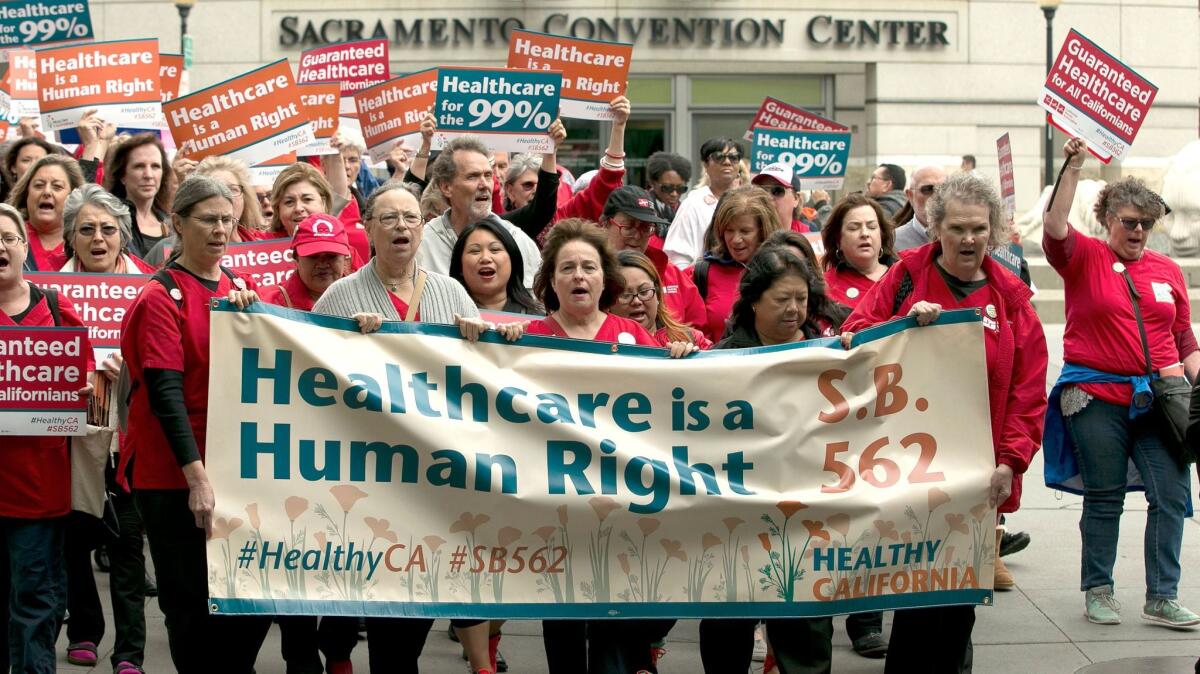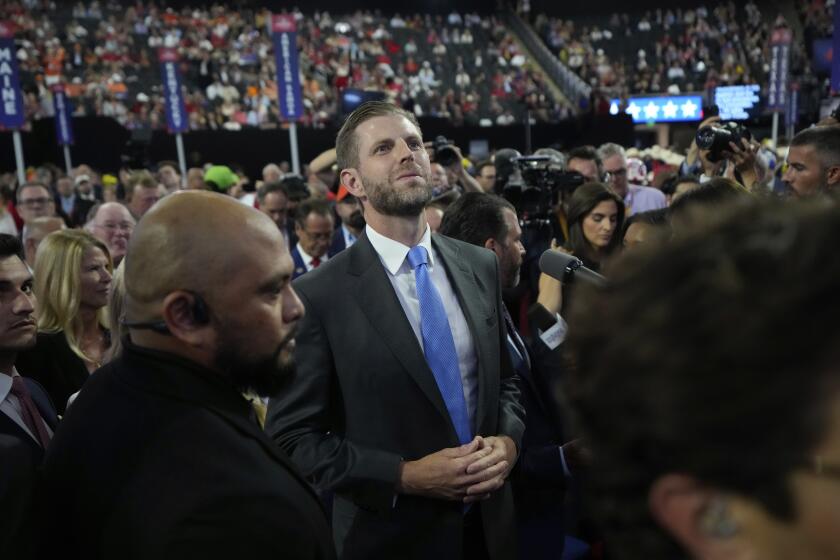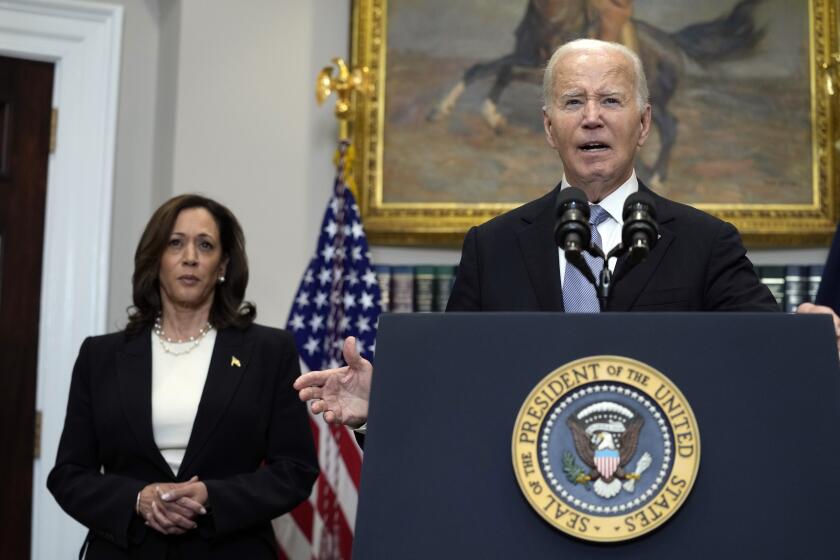Opinion: Yes, California can (stick it to Trump on healthcare)

Good morning. I’m Paul Thornton, The Times’ letters editor, and it is Saturday, June 24, 2017. Right now, during one of California’s worst-ever heat waves, more than 350 runners are trekking over the Sierra Nevada in the world’s most famous 100-mile foot race. Let’s take a look back at the week in Opinion.
Just when Senate Republicans are releasing the details of their Obamacare repeal bill — which would cut billions in Medicaid spending and likely leave millions of Americans with no health insurance — California lawmakers are mulling a plan to establish a universal, single-payer healthcare plan in the state. You couldn’t make up a more dramatic way for California to declare itself the capital of “the Resistance” than by guaranteeing access to care at precisely the moment
But the sticker shock in reaction to the plan’s projected cost — about $330 billion — has blunted some of the excitement over California once again sticking it to Trump. But it shouldn’t, writes economist Robert Pollin in a Times op-ed article. If anything, he says, California will end up spending less on a single-payer system than it does now on healthcare:
As critics of the bill have pointed out, a crucial question remains: Is Healthy California economically viable? According to research I conducted with three colleagues at the University of Massachusetts, Amherst, the answer is yes.
Enacting Healthy California would entail an overhaul of the state’s existing healthcare system, which now constitutes about 14% of California’s GDP. In particular, it would mean replacing the state’s private health insurance industry with government-managed insurance. Our study — which was also commissioned by the California Nurses Assn. — concludes not only that the proposal is financially sound, but that it will produce greater equity in the healthcare sector for families and businesses of all sizes.
California will spend about $370 billion on healthcare in 2017. Assuming the state’s existing system stayed intact, the cost of extending coverage to all California residents, including the nearly 15 million people who are currently uninsured or underinsured, would increase healthcare spending by about 10%, to roughly $400 billion.
That’s not the full story, though. Enacting a single-payer system would yield considerable savings overall by lowering administrative costs, controlling the prices of pharmaceuticals and fees for physicians and hospitals, reducing unnecessary treatments and expanding preventive care. We found that Healthy California could ultimately result in savings of about 18%, bringing healthcare spending to about $331 billion, or 8% less than the current $370 billion.
How would California cover this $331-billion bill? For the most part, much the same way it covers healthcare spending right now.
California vs. Kansas: We win, and it’s not even close. In 2012, Kansas embarked on a radical experiment in trickle-down economics, slashing taxes across the board in what its governor called “a shot of adrenaline into the heart of the Kansas economy.” That experiment failed, notes Tom Steyer. But in California, the economy boomed after taxes went up in 2012. “If states can indeed serve as laboratories of democracy, as Supreme Court Justice Louis Brandeis suggested, there’s no question which state embarked on the more successful test,” Steyer writes. L.A. Times
We regulate slander; why not hate speech? Lawyer and sociologist Laura Beth Nielsen notes that since slander is not considered free speech because of the harm it inflicts on its targets, perhaps we ought to reevaluate the idea that hate speech is free speech since its purpose and effect is the infliction of harm on others. “Instead of characterizing racist and sexist hate speech as ‘just speech,’ courts and legislatures need to account for this research and, perhaps, allow the restriction of hate speech as do all of the other economically advanced democracies in the world,” she writes. L.A. Times
Yes, speech can inspire bad actors. But we should be wary of restricting it. Columnist
More attention for California’s anti-Trump legislators: In Mother Jones, state Senate President Pro Tem Kevin de León is portrayed as being “squarely in the driver’s seat of the West Coast’s resistance to the Trump administration.” In Slate, writer Katy Waldman takes a nuanced view of Sen.
A newly released video doesn’t answer every question about
Reach me: paul.thornton@latimes.com
Get the L.A. Times Politics newsletter
Deeply reported insights into legislation, politics and policy from Sacramento, Washington and beyond. In your inbox three times per week.
You may occasionally receive promotional content from the Los Angeles Times.




